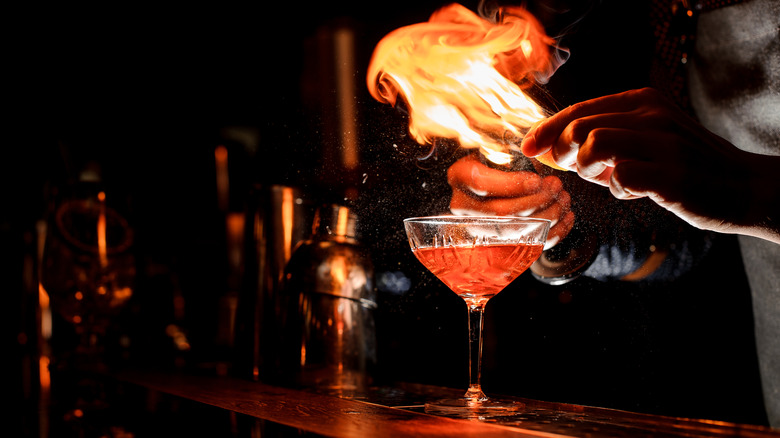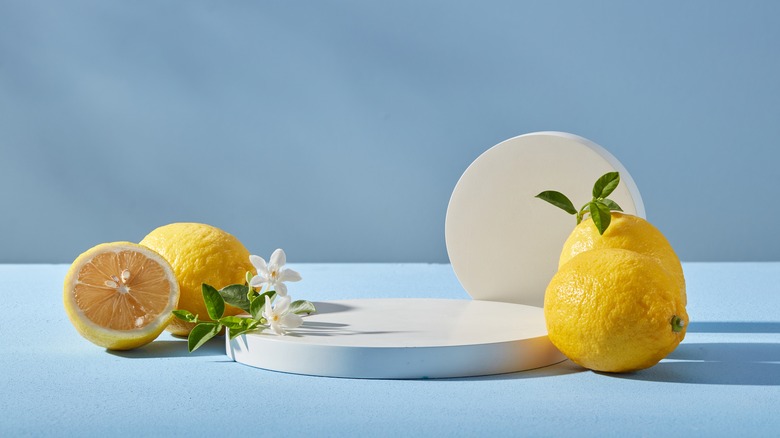Lemon Extract Is The Secret To Lighting Mocktails On Fire
Bartending is about creating a knockout drink, but it's also about showmanship — and there are few better ways to accomplish this goal than with fire. Per the lore, legendary bartender Jerry Thomas' signature cocktail was the Blue Blazer due to its dramatic assembly: Cask-strength Scotch is set ablaze and juggled back and forth between two glass mugs. Traditionally, for a cocktail to be successfully ignited, it needs to involve an over-proof spirit to get the alcohol content high enough to be flammable. But, what if you prefer a booze-free cocktail?
"Sober bars" are a popular and growing trend, and canned mocktails have even entered the ready-to-drink beverage market. Rest assured, there's an easy swap to get the job done: Use lemon extract instead of booze in mocktails for a theatrical flambé, spirit-free.
Not to be confused with lemon juice, lemon extract is made by soaking lemon peels in alcohol. The alcohol absorbs the natural flavors and oils from the peel, creating a concentrated, highly flavored liquid that tastes "lemony" without the accompanying tart sourness. This alcohol content, while failing to intoxicate anybody upon consumption, makes lemon extract wicked flammable. Luckily, at around 165 proof, the lemon extract is far more flammable than most overproof spirits, which only have to clock in over 100 to fit the category. Plus, unlike overproof liquor, this proverbial gasoline doesn't taste like jet fuel (although, you definitely wouldn't want to drink it on its own).
Light it up without getting lit
The easiest way to make it happen is by soaking your garnish in lemon extract. Just grab a small bowl, fill it with pure lemon extract, and thoroughly douse your garnishes in it. This works especially well with citrus peels and sugar cubes, which absorb the extract better for higher flammability. Then, simply position the doused garnishes on top of your drink and hit 'em with a kitchen torch.
The scorched lemon extract will impart a slight tinge of deep lemon flavor, so make sure you're using this tip with cocktails that won't be thrown off balance by the addition. For an unforgettable brunch, you could set your Aperol Spritz on fire. The lemon extract would pair well with the sweet-bitter-citrus profile of the drink, and spirit-free prosecco is a fairly popular offering on the non-alcoholic spirits market. Aperol on its own has an ABV of just 11%, so you could totally use it to make a low-ABV drink. Or, for a totally spirit-free sipper, swap the Aperol for a zero-proof amaro. Then, add a little lemon extract to light it up.
Scorched lemon extract would also make a great addition to this plum and ginger cordial mocktail, with its dimensional profile of deep stone fruit, white tea, sparkling water, punchy ginger, and tart orange juice. The sweet-smoky ingredient would even be delicious in wine-based cocktails using non-alcoholic rosé or orange wine.

